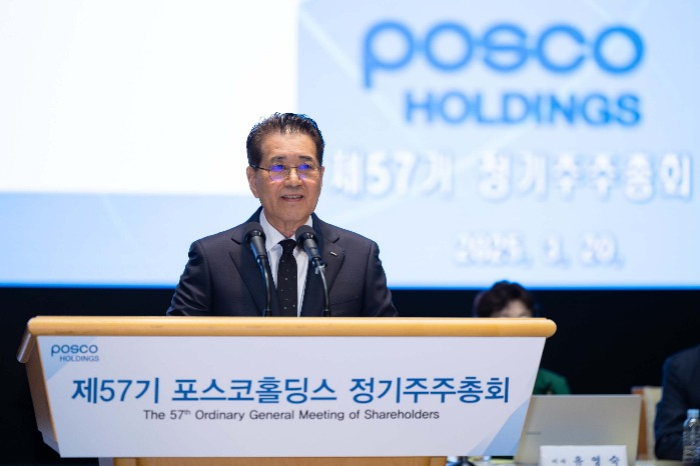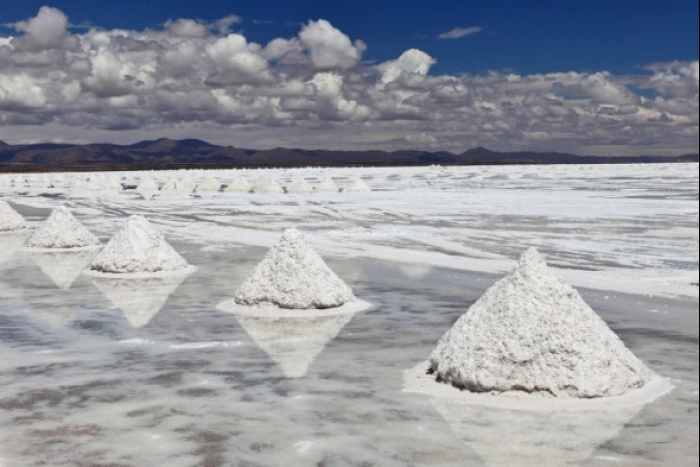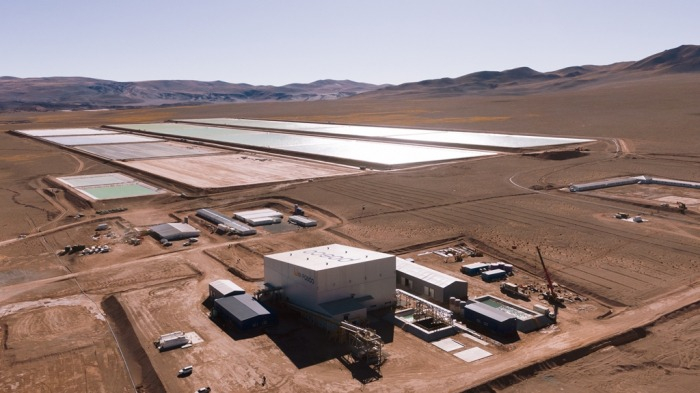
POSCO Holdings Inc. has teamed up with Australia’s Anson Resources Ltd. to build a direct lithium extraction (DLE) demonstration plant in the US, a move expected to help the South Korean steel-to-battery materials conglomerate expand its footing in the battery materials supply chain in North America, the company said on Monday.
Under a non-binding memorandum of understanding (MoU) agreement between the two companies, POSCO Holdings will lead the construction of the plant for the Green River lithium project in Utah’s Paradox Basin, owned by Anson Resources, a natural resources exploration and development company headquartered in Brisbane.
Its construction is expected to begin in 2026.
Under the deal, POSCO Holdings will evaluate its proprietary DLE technology, which was initially developed in 2016.
It will be the first Korean company to test the feasibility of direct lithium extraction in the US. The company has commenced a detailed review of the site.
Once the test confirms its commercial viability, the company will actively incorporate DLE technology in extracting lithium from new reserves in North America and strengthen its position in the region’s lithium supply chain.

“The demonstration plant is part of our investment in securing leadership in a future core technology, which will pave the way for the expansion of our lithium business in North America,” said an official from POSCO Holdings.
POSCO and Anson plan to broaden their partnership to include potential joint investment in the Green River project pending the outcomes of feasibility studies, the official added.
BATTERY MATERIALS BUSINESS AS A CORE GROWTH DRIVER
Many companies have been exploring DLE as a more efficient and sustainable method than the traditional evaporative technology to extract lithium, a critical metal for a secondary battery, which can be found in hard rocks and brines.
It takes up to 18 months to recover lithium from brines via evaporation, but only two weeks with DLE.
The Korean company said the latest investment is a part of its efforts to bolster its battery materials business, one of its two pillar businesses alongside steel.
Under the leadership of Chairman and Chief Executive Chang In-hwa, the company has been reorganizing its portfolio with a focus on its lithium supply chain expansion in the battery materials sector.
POSCO Holdings can produce 68,000 tons of lithium hydroxide per year, enough to power about 1.6 million units of electric vehicles, from its two lithium plants.

It annually produces 25,000 tons of lithium from its facilities near a salt lake in Argentina, which the company acquired in 2018 for $280 million.
It also produces 43,000 tons of lithium hydroxide from Korea’s first lithium hydroxide plant at the Yulchon Industrial Complex, South Jeolla province.
Despite a prolonged slump in the EV market, energy resource companies continue to develop and invest in DLE technology to extract lithium from brine in preparation for a rebound in EV demand.
Lithium demand is expected to increase to 3 million metric tons of lithium carbonate equivalent (LCE) by 2030 from 1.2 million metric tons LCE in 2024 – almost triple the current demand within six years, according to Bloomberg NEF.
DLE production is expected to increase to 526 kilo metric tons (kt) LCE by 2030 from 140 kt LCE in 2024.
SNE Research also forecasts that the global lithium-ion battery materials market will grow to $147.6 billion in 2030 from $79.4 billion in 2024.
By Woo-Sub Kim
duter@hankyung.com
Sookyung Seo edited this article.















